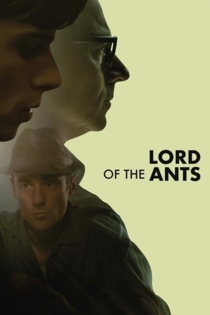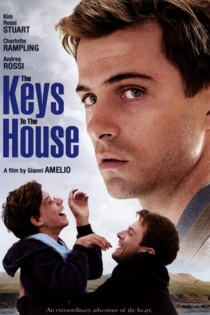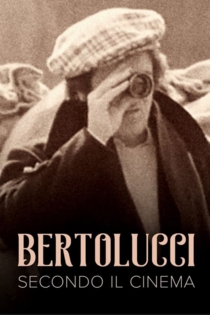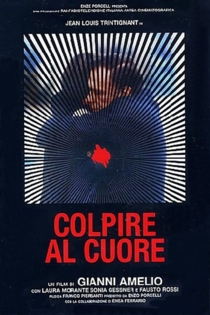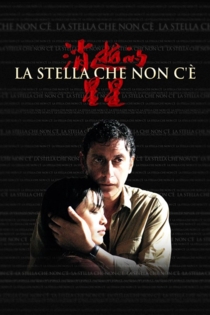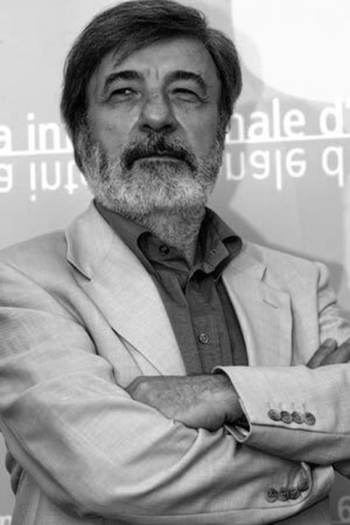
Gianni Amelio
1945 (81 год)Amelio was born in San Pietro di Magisano, province of Catanzaro, Calabria. His father moved to Argentina soon after his birth. He spent his youth and adolescence with his mother and his grandmother. The absence of a paternal figures will be a constant in Amelio's future works. During his university studies of philosophy in Messina, Amelio got interested in cinema, writing as film critic for a local magazine. In 1965 he moved to Rome, where he worked as operator and assistant director for figures such as Liliana Cavani and Vittorio De Seta. He also worked for television, directing documentaries and advertisements.
Amelio's first important work is the TV film "Sun City", directed in 1973 for RAI TV and inspired to Tommaso Campanella's work. This was followed by "The Cinema According to Bertolucci" (1976) a documentary about "1900" shooting, and the thriller "Special Effects" (1978). Two years later he directed the mystery "Death at Work" (1978), which won prizes at Locarno and Hyères festivals. "The Little Archimedes" of 1979 was also critically acclaimed. In 1982 he debuted for cinema proper with "Blow to the Heart" (1982), about Italian terrorism, presented at the Venice Film Festival. In 1987 Amelio released "Via Panisperna Boys", about the lives of 1930 Italian physicists such as Enrico Fermi and Edoardo Amaldi, which won the award for best screenplay at the Bari Film Festival. 1989's "Open Doors", featuring Gian Maria Volonté, confirmed Amelio's status as one of Italy's best film directors and won a nomination as Best Foreign Film at 1991 Academy Awards. The film received also four Felix, two Silver Ribbon, four David di Donatello and three Golden Globes awards. Also successful was "The Stolen Children" in 1992, which won the Special Prize of Jury at the 1992 Cannes Film Festival plus two Silver Ribbon and 5 David di Donatello. In 1994 "Lamerica", about Albanian immigration in Italy, repeated the fate and the success, with 2 Silver Ribbons and 3 Davids. Four years later, "The Way We Laughed" won the Golden Lion at the Venice Film Festival. Amelio gained another Silver Ribbon as best director for "The Keys to the House", inspired to a novel by Giuseppe Pontiggia, of 2004. Amelio was a member of jury at the Cannes Film Festival in 1995. In 2006 he released his eighth feature film, "The Missing Star", featuring Sergio Castellitto. From 2009 to 2012 he has been director of Torino Film Festival, Turin.
Amelio came out as gay late in life, shortly before the release of his 2014 documentary "Happy to be Different".
Registro di classe. Libro secondo 1968-2000
Gianni Amelio, Cecilia Pagliarani
School registers are made to record the students' absences and grades. But not all students are equal, not all of them are given the same opportunities. In this journey lasting over a century, teachers, children, parents from every part of Italy reconstruct the history of compulsory schooling, and their personal experiences, great expectations and deeply-felt disappointments.
Class Register. Second Book 1968-2000
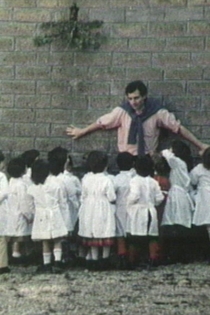
Il ladro di bambini
Gianni Amelio
Enrico Lo Verso, Valentina Scalici
Antonio, a policeman (carabiniere), has an order to take two children (Rosetta and her brother Luciano) from Milan to Sicily to an orphanage. Their mother has been arrested for forcing Rosetta (11 years old) to work as a prostitute. First the relation between Antonio and the children is tough, but it relaxes so they become temporary friends.
The Stolen Children
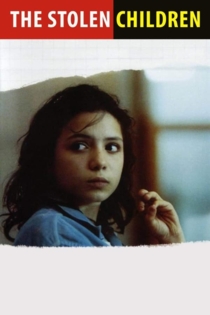
Lamerica
Gianni Amelio
Enrico Lo Verso, Michele Placido
Fiore, an Italian conman, arrives in post Communist Albania with Gino, his young apprentice, to set up a shoe factory that will never open. The con requires a native Albanian, so they designate Spiro, an impoverished and confused former political prisoner as chairman of the board. When Fiore returns to Italy to get government funds for the project, Spiro unexpectedly disappears and Gino sets out on a journey to find him. The search leads him to discover Spiro's tragic personal history and witness Albanian poverty firsthand.
Lamerica

I ragazzi di via Panisperna
Gianni Amelio
Andrea Prodan, Mario Adorf
The enthusiasms, fears, joys and disappointments of the (private and professional) life of a well-known group of boys fond of physics and mathematics, who just made history as the Via Panisperna boys.
Via Panisperna Boys
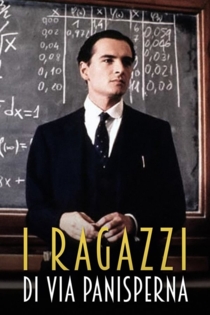
Porte aperte
Gianni Amelio
Gian Maria Volonté, Ennio Fantastichini
Tommaso Scalia is a man who commits three murders: he kills his superior who sacked him, the man who replaced him and his wife. He wants a quick trial and an early execution, but an earnest, principled assistant judge looks for a way to save the murderer from being shot, because he does not belive in capital punishment.
Open Doors
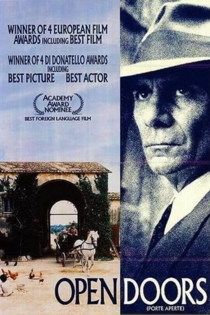
Il piccolo Archimede
Gianni Amelio
John Steiner, Aldo Salvi
The action takes place in Florence in the 1930s. Alfred, an Englishman who moved to that city in order to write a book on Giotto, meets a boy who is fond of music and mathematics, with whom he becomes close friends. Alfred goes to Switzerland, but one day he receives an anguished letter from the boy and rushes back to Florence where he learns some terrible news.
The Little Archimedes
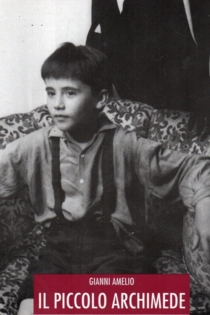
Registro di classe. Libro primo 1900-1960
Gianni Amelio, Cecilia Pagliarani
School registers are made to record the students' absences and grades. But not all students are equal, not all of them are given the same opportunities. In this journey lasting over a century, teachers, children, parents from every part of Italy reconstruct the history of compulsory schooling, and their personal experiences, great expectations and deeply-felt disappointments.
Class Register. First Book 1900-1960
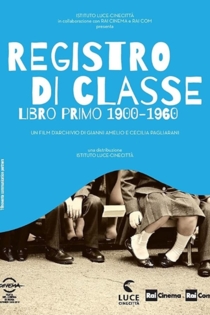
Così ridevano
Gianni Amelio
Enrico Lo Verso, Francesco Giuffrida
Studying to become a teacher in 1950s Northern Italy, Sicilian immigrant Pietro is joined by his older brother Giovanni. While Giovanni is an illiterate worker, Pietro shows considerable promise in his field, prompting the elder sibling to take on even the toughest jobs in order to support his brother's academic pursuits.
The Way We Laughed
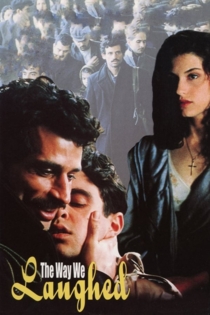
Le premier homme
Gianni Amelio
Jacques Gamblin, Maya Sansa
Based on a novel that Albert Camus was working on when he died, we follow Jacques Comery as he travels back to Algeria in 1957, a place full of childhood memories. The country is split between those wanting to remain a part of France, and those demanding independence. Reminiscences of his mother, his stern grandmother and a young Arab boy come flooding back.
The First Man
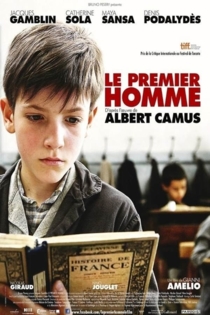
Il signore delle formiche
Gianni Amelio
Gina Rovere, Luigi Lo Cascio
Based on true events of the late 60s in Italy, poet, playwright and myrmecologist Aldo Braibanti is prosecuted and sentenced to prison for the love he shares with his barely-of-age pupil and friend, Ettore. Amidst a chorus of voices of accusers, supporters and a largely hypocritical public, a single committed journalist takes on the task of piecing together the truth, between secrecy and desire, facing suspicion and censorship in the process.
Lord of the Ants
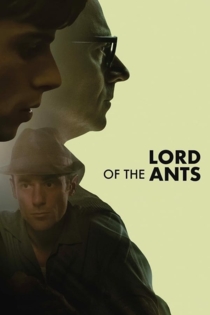
Il signore delle formiche
Gianni Amelio
Luigi Lo Cascio, Elio Germano
Based on true events of the late 60s in Italy, poet, playwright and myrmecologist Aldo Braibanti is prosecuted and sentenced to prison for the love he shares with his barely-of-age pupil and friend, Ettore. Amidst a chorus of voices of accusers, supporters and a largely hypocritical public, a single committed journalist takes on the task of piecing together the truth, between secrecy and desire, facing suspicion and censorship in the process.
Lord of the Ants
